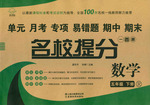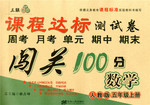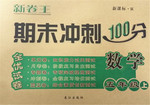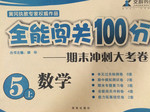
Mike Henry has a two-hectare farm in Palmer, Alaska. About a year and a half ago, his goat Millie was giving him a hard time. She didn’t want to be milked. Instead, she kicked her back legs and stepped into the bucket that was supposed to catch her milk. But there was no milk to catch. All Mike Henry got was tired hands from his attempts to milk her. But he also got an idea. He designed a goat milking machine that does not require any electricity or motors.
The Henry Milker is a hand-operated vacuum pump. It attaches a tube to the goat. After a little pumping, the milk begins to flow. The process uses a closed system to keep hair and dirt out of the milk. The milk goes directly from the goat into a box that is then placed in the refrigerator to keep the milk cold.
Milk Henry has sold his invention to hundreds of people, mainly small farmers just like him. He at first considered spending more than one thousand dollars on an electric milking machine. But that seemed like a lot of money to milk just one goat. So he began to develop a device of his own. He worked with parts that he bought from an auto supply store and a Wal-Mart store.
He tried his invention on Millie. How did she react? She gave a little milk. As the months passed, he improved the device. Milking Millie became easy. The average milking time with the Henry Milker is ten minutes. Mike Henry says Millie now gives about two liters in half that time.
Mike Henry began to think other people who owned just a few goats might be interested in his invention. So he offered one on eBay, an Internet marketplace. The first one sold for forty-five dollars. Today, he receives orders from as far away as Australia and New Zealand with the regular price being one hundred forty-nine dollars.
66. Mike Henry’s idea of inventing the Henry Milker came from __________ .
A. Henry’s usual milking experiences
B. Henry’s sense of saving electricity
C. Henry’s difficult time with Millie
D. Henry’s conversation with some farmers
67. A closed system is used during the process in order to __________ .
A. cause the milk to flow B. make sure the milk is fresh
C. save the milking time D. keep the milk clean
68. According to the passage, who would love the improved invention by Mike Henry most?
A. People who are interested in electric machines.
B. Farmers with just a few goats wondering how to milk goats efficiently.
C. Farmers owning a large number of goats.
D. People from as far away as Australia and New Zealand.
69. What can we learn from the passage?
A. Henry’s profits from his great invention are increasing.
B. After offering his invention online, Henry found people took no interest in it.
C. Henry gave his invention to small farmers like him for free.
D. Henry invented his electric milking machine.
70. What is the author’s attitude in this passage?
A. Defensive. B. Persuasive. C. Objective. D. Subjective.
 名校提分一卷通系列答案
名校提分一卷通系列答案 课程达标测试卷闯关100分系列答案
课程达标测试卷闯关100分系列答案 新卷王期末冲刺100分系列答案
新卷王期末冲刺100分系列答案 全能闯关100分系列答案
全能闯关100分系列答案科目:高中英语 来源: 题型:054
完形填空:
阅读下面短文, 掌握其大意, 然后从1~25各题所给的四个选项中, 选出一个最佳答案.
(A)Mike Wilson worked as a low rank official in the War Office during the Second World War. 1 he didn't hold an important position, he 2 almost everybody, and was trusted by most of his leaders.
One day, Wilson arrived at his office in an expensive car. 3 , he appeared to have got a lot of money to spend. He bought an expensive house and gave parties one after another. At one of the parties he met a beautiful woman and 4 her. When he was asked by his girl friend one evening how he had suddenly got 5 money to spend, Wilson explained that he had a very rich uncle who 6 and posted him money nearly every month. But his story could not cheat the policewoman 7 him closely, because 8 had noticed that he often stayed behind in the evening and usually 9 person to leave the War Office.
His “girlfriend” and three other policemen entered his house when he was out and discovered copies of the government secret papers and a radio transmitter (发报机) 10 a piano. After Wilson was caught, it was learned that his name was Jack Brown, and that he had been hired (雇用) as a spy for the Germans.
1.
[ ]
A. Because B. Though
C. In spite of D. Because of
2.
[ ]
A. get about very well with B. get on very well for
C. get along very well with D. get away very well to
3.
[ ]
A. As his salary was small B. Fewer as his salary was
C. As his salary was fewer D. Small as his salary was
4.
[ ]
A. fell in love with B. felt in love for
C. fell in love to D. fell in loving by
5.
[ ]
A. so many B. too many
C. so much D. too much
6.
[ ]
A. living abroad B. lived abroad
C. living in abroad D. lived in abroad
7.
[ ]
A. who had been sent to look at
B. who had sent to see
C. who had been sending to observe
D. who had been sent to watch
8.
[ ]
A. the army officers B. the police
C. his uncle D. his wife
9.
[ ]
A. the first B. Latest
C. the last D. the final
10.
[ ]
A. hiding inside B. hidden outside
C. hiding outside D. hidden inside
(B)
The manager waved his hand towards the chair on the other side of the desk and told Henry 11 . “I'm waiting for a long-distance call from Manchester, ” he explained. The telephone rang just as he spoke. The manager 12 the receiver (受话器) and for some minutes spoke rapidly and impatiently into the telephone. Henry waited, rather regretting that his interview (会见), which he had been dreading for days, had not begun at once. When at last the manager had finished, a secretary came in with 13 letters. “I really won't keep you waiting 14 , ” said the manager apologetically, as he picked up the first letter and began to read it. “But these 15 the next post. ”
Henry passed the time by examining the manager's officer in some detail (仔仔细细地). On his right there was a large window, heavily curtained, with a view of the factory yard. Henry could see two workmen 16 a trolley (手推车) across it towards a shed at the far end. 17 the window there were three chairs, arranged around a long, low table, 18 stood a jug of water and some glasses. To Henry's left there was a bookcase, which covered the greater part of one wall. The shelves were empty 19 reference books, a pile of technical journals (杂志), which 20 they might at any moment slip off the shelf and fall to the ground, on the top shelf, standing by itself and looking rather 21 in the manager's office, a child's plastic toy. Henry 22 it came to be there.
The most impressive (给人印象深的) piece of furniture in the room was manager's desk. Everything on its spacious (宽敞的) polished (擦亮) top was arranged with great neatness (整洁). 23 there were two metal trays (浅盘), one marked IN, the other marked OUT. In the latter (后者) the manager dropped the letters which he had just signed. Henry had finished his survey (环视) of the room when the manager signed the last letter and threw it into the tray 24 . “That's the lot, ” he said, as he rang the bell for his secretary to come in and take the letters away. Then he 25 his glasses and rubbed his eyes. “Now let me see, ” he said. “You've come about our advertisement for a clerk (职员) in the accounts section (会计科), haven't you? ” Henry nodded. His interview had begun.
11.
[ ]
A. taking a seat B. to take a sitting
C. taking seated D. to take a seat
12.
[ ]
A. picked out B. picked up
C. picked off D. picked off
13.
[ ]
A. a kind of B. a type of
C. a pile of D. a piece of
14.
[ ]
A. more longed B. much longer
C. much more longer D. very much long
15.
[ ]
A. have to miss B. ought to drop
C. must meet D. have to catch
16.
[ ]
A. pushing B. to push
C. pushed D. push
17.
[ ]
A. Close by B. Close to
C. Closely to D. Closely by
18.
[ ]
A. in which B. from which
C. on which D. at which
19.
[ ]
A. except for a dozen or so
B. except a dozen or so
C. besides a dozen or so
D. expect that a dozen or so
20.
[ ]
A. looked even if B. seem as if
C. looked as though D. seemed even though
21.
[ ]
A. out of a place B. out of place
C. out of the place D. in the place
22.
[ ]
A. could not help wondering how
B. could help wondering why
C. couldn't help to wonder when
D. could not help wondering what
23.
[ ]
A. On all sides of the desk
B. On either siders of this desk
C. On both sides of the desk
D. On any sides of that desk
24.
[ ]
A. by his right B. at the right
C. in the right D. on this right
25.
[ ]
A. put on B. took off
C. took down D. took up
查看答案和解析>>
科目:高中英语 来源:活题巧解巧练·高一英语(上) 题型:001
听力第一节:听下面5段对话,选择正确答案.
1.What does the man want to do?
[ ]
A.To buy his mother-in-law a present.
B.To buy his wife a birthday present.
C.To visit his mother-in-law.
2.What can we learn about the man speaker?
[ ]
A.He has long hair.
B.He doesn't like young people.
C.He has just had his hair cut.
3.What does the woman mean?
[ ]
A.She likes cars.
B.A car is necessary.
C.Secondhand cars are better.
4.What will Mike do on Sunday?
[ ]
A.Playing tennis.
B.Playing football.
C.He is not sure what to do.
5.When will the plane from New York arrive now?
[ ]
A.At 9:20.
B.At 9:35.
C.At 10:50.
第二节:听第6段材料,回答第6~7题.
6.What are they most probably doing?
[ ]
A.Climbing a mountain.
B.Seeing a film.
C.Having dinner.
7.Why didn't the woman sleep well?
[ ]
A.She was hungry.
B.She was too excited.
C.She went to bed 20 minutes late.
听第7段材料,回答第8~10题.
8.Which of the following are NOT city government workers?
[ ]
A.Teachers in public schools.
B.Police officers.
C.Doctors.
9.What is Henry?
[ ]
A.A fire fighter.
B.A policeman.
C.An office worker.
10.When does Nancy work every day?
[ ]
A.From 9am to 5 pm.
B.From 9am to 4 pm.
C.From 8am to 4 pm.
查看答案和解析>>
科目:高中英语 来源:黑龙江哈尔滨市第三中学2006-2007学年度高三年级上学期月考英语试题 题型:001
听力
第一节:(共5小题;每小题1.5分,满分7.5分)
听下面5段对话。每段对话后有一个小题,从题中所给的A、B、C三个选项中选出最佳选项,并标记在试卷的相应位置。听完每段对话后,你都有10秒钟的时间来回答有关小题和阅读下一个小题。每段对话仅读一遍。
1.What can man conclude from the conversation?
A.The woman thinks the price acceptable.
B.The woman thinks the price cheap.
C.The woman thinks the price expensive.
2.What is Henry’s new phone number?
A.614480
B.611480
C.614880
3.Why does the woman move forward and backward?
A.She is very happy.
B.She is very excited.
C.She is very worried.
4.Where does the conversation most likely take place?
A.In a supermarket.
B.In a library.
C.In a dining hall.
5.Which statement is TRUE?
A.Paul was late because he was busy in making a cake.
B.The woman was angry for Paul was late.
C.The woman was glad that Paul had come finally.
第二节:(共15小题;每题1.5分,满分22.5分)
听下面5段对话或独白。每段对话后有几个小题,从题中所给的A,B,C三个选项中选出最佳选项,并标在试卷的相应位置。听每段对话前,你将有时间阅读各个小题,每小题5秒钟;听完后,每小题将给出5秒钟的作答时间。每段对话或独白读两遍。
听第6段材料,回答第6至7小题。
6.Why was Mike in a big hurry?
A.He thought it was late for school.
B.He thought it was late for his date.
C.He thought it was late for meeting Bob.
7.What can we most possibly infer from the passage?
A.Bob was looking for something.
B.Bob didn’t know the date either.
C.Mike and Bob were both hard-studying students.
听第7段材料,回答第8至10小题。
8.Where does the conversation most likely take place?
A.In a taxi.
B.On a bus.
C.In a train.
9.When can the talk most probably happen?
A.In the early morning.
B.In the morning.
C.In the evening.
10.How much is the change?
A.25 cents.
B.35 cents.
C.No change.
听第8段材料,回答第11至第13小题。
11.What is the man’s problem?
A.He can’t talk with foreigners.
B.He can’t understand English grammar.
C.He can’t understand the foreigners.
12.How does the man learn English?
A.Watching TV programs.
B.Using tapes and attending training classes.
C.Both A and B.
13.What can we conclude from the conversation?
A.Jack speaks English a lot.
B.Jack is happy to learn driving.
C.Jack is worried about his spoken English.
听第9段材料,回答第14至17题。
14.Why did the author take a taxi?
A.Because of the bad weather.
B.Because of being in a hurry.
C.No reason.
15.What were they talking about?
A.A popular radio channel.
B.A popular radio program.
C.Changing the radio channel.
16.What does the expression“that air in the car began to freeze”mean?
A.It is really cold
B.The doors of the car were not closed.
C.The situation is unfriendly.
17.Why did the author become angry?
A.The author will be late for work.
B.The driver is ignorant of the advice offered by the author.
C.The driver crashed into a tree.
听第10段材料,回答第18至第20小题。
18.Where does the conversation most likely take place?
A.At home.
B.In a restaurant.
C.At an airport.
19.What do people eat on Thanksgiving Day?
A.Corn.
B.Rice.
C.Noodle.
20.When is Thanksgiving Day in Canada?
A.In October.
B.In November.
C.In December.
查看答案和解析>>
科目:高中英语 来源:0107 期中题 题型:听力题
查看答案和解析>>
湖北省互联网违法和不良信息举报平台 | 网上有害信息举报专区 | 电信诈骗举报专区 | 涉历史虚无主义有害信息举报专区 | 涉企侵权举报专区
违法和不良信息举报电话:027-86699610 举报邮箱:58377363@163.com